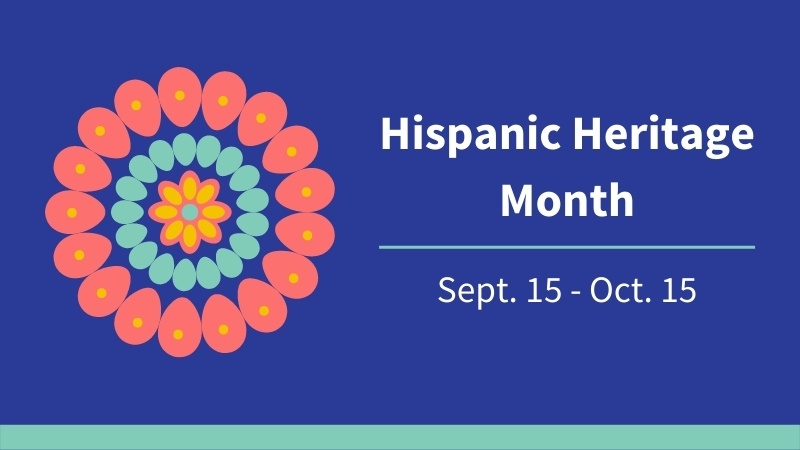
Esta publicación de blog también está disponible en español.
During Hispanic Heritage Month, we pay tribute to the history, culture, and contributions of various Hispanic/Latinx countries. I am extremely honored and grateful to be able to call myself a member of this community. Names such as Cesar Chavez, Dolores Huerta, Sonia Sotomayor, and Alexandria Ocasio-Cortez carry so much weight across the nation and beyond for their great contributions and advocacy in areas ranging from farm worker rights to international politics. These activists, along with so many others, have given me the privilege and opportunity to understand the importance of hard work, perseverance, and will to fight for what I believe in. It has been their stories, and the stories of so many great individuals' lives that have crossed my path, that have allowed me to successfully navigate the higher education system despite the barriers.
Pursuing a higher education is not an easy feat, even in the best conditions. Aside from the financial strain and academic challenges I faced, I vividly remember the fear of losing my identity in an attempt to be successful at Michigan State University. Attending a predominantly White institution as a person of color came with an intimidating culture shock. During a weekend visit to my home, just a month after moving into my residence hall, I found I was struggling to speak Spanish, my native language. That realization made me feel as if I was beginning to lose a part of my identity, which was followed by feelings of shame, guilt, and resentment. In an attempt to cope with these feelings, I reached out to close friends and peers and began sharing my story, only to realize this experience was not unique to me. In actuality, many individuals from under-represented cultures experience situations very similar to this one, but they often feel like they are the only people experiencing this.
I am extremely thankful to my family and peers who helped me understand my beautiful culture and helped me develop a clear understanding of my identity. Their love and support allowed me to navigate the challenges of Michigan State University’s culture while still appreciating and preserving my own identity and culture.
While my story illustrates one of the various challenges I had to endure as a Latina, it is just one of the myriad challenges I and other first-generation college-going students, low-income students, and students of color must overcome to attend college and complete a degree. Data suggests that a sense of belonging is an important factor for the success of students; we must recognize and confront the fact that many students, such as myself, have been failed by institutions. Experiences like mine continue to happen on college campuses across the nation, and it is our responsibility to continue fighting for equity and to hold institutions accountable for the way they support Hispanic/Latinx students, as well as other students that the system is not designed to serve.
It is experiences such as this one that have guided my life and passion today. Through these challenges, I recognized a need for students to have resources and a guide to navigate the college experience. It has also been the reason I have decided to join an organization that believes “college is for everyone,” works to implement equity practices, and advocates for equity among all students — especially first-generation college-going students, low-income students, and students of color. It is evident that there is so much to celebrate during Hispanic Heritage Month — and every day — as we have made great progress, but we must keep in mind that the fight is not over. We must continue to advocate for our people, just as our predecessors have done for us over the years.
Pursuing a higher education is not an easy feat, even in the best conditions. Aside from the financial strain and academic challenges I faced, I vividly remember the fear of losing my identity in an attempt to be successful at Michigan State University.